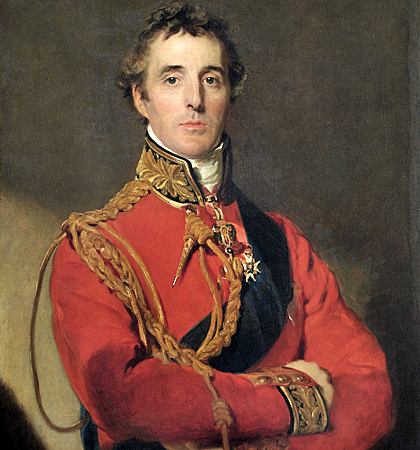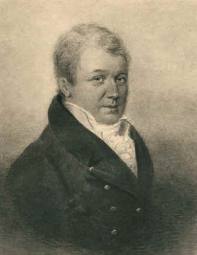 |
| Thomas Creevey |
Mr. Creevey to Dr. Currie.
22nd Aug., 1803.
“… I saw a great deal of Sheridan. We dined together several times, got a little bosky, and he took great pains to convince me he was sincere and confidential with me. … A plan of his relates to Ireland, and it is the substitution of a Council for the present Viceroy, the head of the Council to be the Prince of Wales, his assistants to be Lord Moira, Lord Hutchinson and Sheridan himself. The Prince is quite heated upon the subject; nothing else is discussed by them. Lord Hutchinson is as deep in the design as any of them, but God knows it is about as probable as the embassy of old Charley to Russia I believe Sherry is very much in the confidence of the Ministers. They have convinced him of the difficulty of pressing the King for any attentions to the Prince of Wales; he is quite set against him, and holds entirely to the Duke of York, who, on the other hand, is most odious to the Ministry. . . . Have you begun your visits to Knowsley yet? . . . If you see Mrs. Hornby, cultivate her. She is an excellent creature; her husband, the rector, is the most tiresome, prosy son of a —— I ever met with, but is worthy. . . .”
 |
| General Sir John Moore |
General Sir John Moore to Mr. Creevey.
Sandgate, 15th Sept., 1803.
“. . . The newspapers have disposed of me and my troops at Lisbon and Cherbourgh, but we believe that we have not moved from this place. I begun to despair of seeing you here, and am quite happy to find that, at last, I am to have that pleasure. If the Miss Ords do not think they can trust to the Camp for beaux, or if they have any in attendance whose curiosity to see soldiers they may chuse to indulge, assure them that whoever accompanies them shall be cordially received by everybody here. . . .”
 |
| Capt. Graham Moore |
Capt. Graham Moore, R.N., to Mr. Creevey.
“Plymouth, August 7th, 1803. “… I never had to do with a new ship’s company before made up of Falstaffs men—’decayed tapsters,’ etc., so I do not bear that very well and I get no seamen but those who enter here at Plymouth, which are very few indeed. The Admiralty will not let me have any who enter for the ship at any of the other ports, which cuts up my hopes of a tolerable ship’s company. … I hear sometimes from my brother Jack. He says they have had a review of his whole Corps before the Duke of York. . . . My mother was more delighted with the scene than any boy or girl of fifteen. N.B.—she is near 70. . . . She is an excellent mother of a soldier. I am not afraid of showing her to Mrs. Creevey, altho’ she is of a very different cast from what she has generally lived with. If Mrs. Creevey does not like her, I shall never feel how the devil she came to like me.
“Jack says his Corps are not at all what he would have them, yet that they will beat any of the French whom he leads them up to. I am convinced the French can make no progress in England, and do not believe now that they will attempt it; but how is all this to end? However that may be, as I am in for it, I wish to God I was tolerably ready, and scouring the seas. What the devil can Fox mean by his palaver about a military command for the Prince of Wales? That may come well enough from Mrs. Barham perhaps.”
Capt. Graham Moore, R.N., to Mr. Creevey.
Plymouth Dock, Feby. 1st, 1804.
“… I suppose you mean to join the set that prepare to worry the poor Doctor (Addington) when Parliament meets. What can he do? He seems, or we seem, to do as well as Bonoparte—fretting and fuming and playing off his tricks from Calais to Boulogne and back again. The fellow has done too much for a mere hum; he certainly will try something, and I hope to be in at the death of some of his expeditions. If they do not take my men, we shall soon be ready for sea again. New copper, my boy! we shall sail like the wind. . . .”
Mr. Creevey to Dr. Currie.
“2nd May, 1804.
“. . . It is felt by the Pittites that the Prince and a Regency must be resorted to, and as the Prince evinced on every occasion the strongest decision in favor of Fox, the Pittites are preparing for a reciprocity of good offices. God send we may have a Regency, and then the cards are in our hands. I wish you had seen the party of which I formed one in the Park just now. Lord Buckingham, his son Temple, Ld. Derby, Charles Grey, Ld. Fitzwilliam, Canning, Ld. Morpeth and Ld. Stafford. . . . The four physicians were at Buckingham House this morning: I feel certain he (the King) is devilish bad.”
But, as we know, the Regency did not begin for another seven years. We will post a number of excerpts from the many diarists and prolific letter writers of the Regency era in future blogs. Watch for more from Mr. Creevey, his friends, his enemies and those who never had the privilege to be either.










